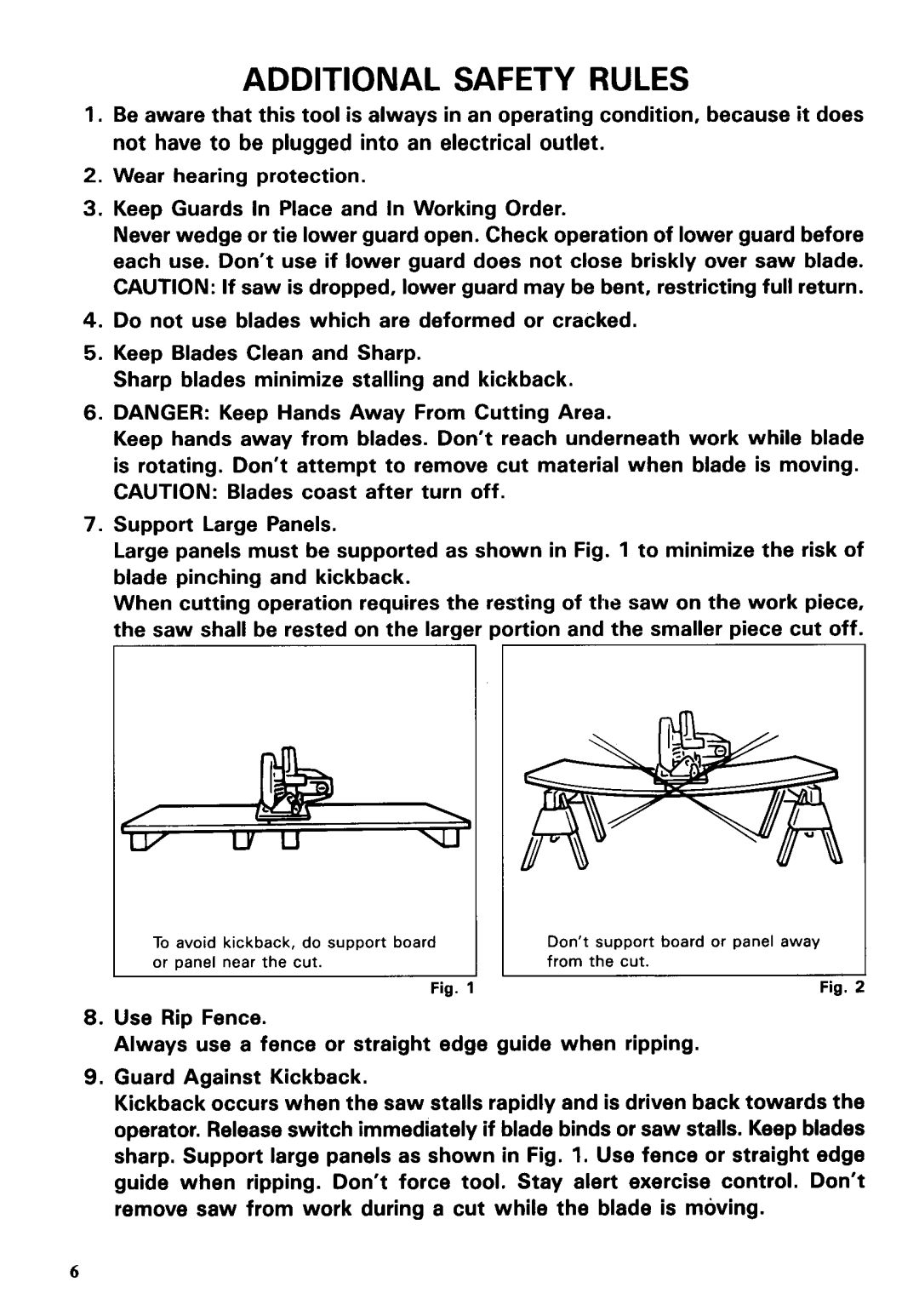
ADDITIONAL SAFETY RULES
1.Be aware that this tool is always in an operating condition, because it does not have to be plugged into an electrical outlet.
2.Wear hearing protection.
3.Keep Guards In Place and In Working Order.
Never wedge or tie lower guard open. Check operation of lower guard before each use. Don't use if lower guard does not close briskly over saw blade. CAUTION: If saw is dropped, lower guard may be bent, restricting full return.
4.Do not use blades which are deformed or cracked.
5.Keep Blades Clean and Sharp.
Sharp blades minimize stalling and kickback.
6.DANGER: Keep Hands Away From Cutting Area.
Keep hands away from blades. Don't reach underneath work while blade is rotating. Don't attempt to remove cut material when blade is moving. CAUTION: Blades coast after turn off.
7.Support Large Panels.
Large panels must be supported as shown in Fig. 1 to minimize the risk of blade pinching and kickback.
When cutting operation requires the resting of the saw on the work piece, the saw shall be rested on the larger portion and the smaller piece cut off.
To avoid kickback, do support board or panel near the cut.
Fig.
Don't support board or panel away from the cut.
Fig. ;
8.Use Rip Fence.
Always use a fence or straight edge guide when ripping.
9.Guard Against Kickback.
Kickback occurs when the saw stalls rapidly and is driven back towards the operator. Release switch immediately if blade binds or saw stalls. Keep blades sharp. Support large panels as shown in Fig. 1. Use fence or straight edge guide when ripping. Don't force tool. Stay alert exercise control. Don't remove saw from work during a cut while the blade is moving.
6
